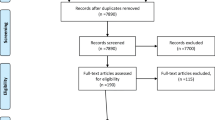Abstract
Objective:To assess physicians’ preferences for patient autonomy when they are patients themselves.
Design:Data from practicing physicians attending a continuing medical education course were obtained by questionnaire. After adjustment for sociodemographic differences, data from the physician population were compared with similar data previously obtained from a patient population.
Participants:One bundred fifty-one physicians (94% of the study population) agreed to participate. Ninety percent were primary care physicians. Fifty-eight percent practiced in the eastern United States.
Main results:The physicians, like the regular patients, preferred that the principal role in decision making for their own illnesses be bandled by their providers, not by themselves. As illness severity increased, physicians indicated significantly less desire for making decisions (p<0.01). The magnitudes of the effects of increasing illness severity upon the decision-making preferences of physician and regular patients were comparable (p=0.53). Physicianpatients, however, were slightly more interested than regular patients in making decisions (p<0.001).
Conclusions:Although physician-patients are slightly more interested than regular patients in making decisions, for the most part their preferences for autonomy resemble those of regular patients. These results suggest that medical knowledge and sociocultural factors are only minor determinants of patient attitudes towards autonomy. Rather, patients’ preferences to be relieved of decision-making responsibility are better understood as part of the phenomenology of illness.
Similar content being viewed by others
References
Strull WB, Lo B, Charles G. Do patients want to participate in medical decision-making? JAMA. 1984;252:2990–4.
Krantz DS, Baum A, Wildeman MV. Assessment of preferences for self-treatment and information in health care. J Pers Soc Psychol. 1980;39:977–90.
Pendleton L, House WC. Preferences for treatment approaches in medical care: college students versus diabetic outpatients. Med Care. 1984;22:644–6.
Lidz C, Meisel A. Informed consent and the structure of medical care. In: President’s Commission for the Study of Ethical Problems in Medicine and Biomedical and Behavior Research. Making health care decisions: the technical and legal implications of informed consent in the patient — provider relationship; vol 2. Washington, DC: Government Printing Office, 1982:317–410.
Ende J, Kazis L, Ash A, Moskowitz MA. Measuring patients’ desire for autonomy: decision-making and information-seeking preferences among medical patients. J Gen Intern Med 1988;4:23–30.
Waitzkin H, Stoeckle JD. The communication of information about illness: clinical, sociological and methodological considerations. Adv Psychosom Med. 1982;96:110–3.
Brody DS. The patient’s role in clinical decision-making. Ann Intern Med. 1980;93:718–22.
Greenfield S, Kaplan S, Ware JE. Expanding patient involvement in care: effects of patient outcomes. Ann Intern Med. 1985;102:520–8.
Cassell EJ. The function of medicine. Hastings Center Report, 1977;Dec:16–9.
Szasz TS, Hollander MH. A contribution to the philosophy of medicine. The basic models of the doctor—patient relationship. Arch Intern Med 1856. 97:585–92.
Siegler M. The physician-patient accommodation: a central event in clinical medicine. Arch Intern Med. 1982;142:1899–902.
Bunker JP, Brown BW. The physician-patient as an informed consumer of surgical services. N Engl J Med. 1974;290:1051–5.
Cockerman WC, Creditor MC, Creditor Uk, Imrey PB. Minor ailments and illness behavior among physicians. Med Care. 1980;18:164–73.
Inglefinger FJ. Arrogance. N Engl J Med. 1980;303:1507–11.
Pinner M. Chronic heart disease. In: Pinner M, Miller BF, eds. When doctors are patients. New York: W. W. Norton, 1955:18–30.
Grotjahn M. On being a sick physician. In: Wahl CW, ed. New dimension in psychosomatic medicine. Boston: Little, Brown and Co., 1964:117–27.
Mandell H, Spiro H. When doctors get sick. New York: Plenum, 1987.
Osmond H. Siegler M. Doctors as patients. Practitioner. 1977;218:834–9.
Lipsett DR. The doctor as a patient. Psychiatr Opinion. 1975;12:20–5.
Marzuk PM. When the patient is a physician. N Engl J Med. 1988;317:1409–11.
Author information
Authors and Affiliations
Additional information
Received from the Evans Memorial Department of Clinical Research and the Section of General Internal Medicine, Boston University School of Medicine, Boston, Massachusetts. Dr. Ende is currently at the University of Pennsylvania School of Medicine, Philadelphia, Pennsylvania.
Supported by a grant from the Liberty Mutual Insurance Company to the National Fund for Medical Education, Grant 43/82B
Rights and permissions
About this article
Cite this article
Ende, J., Kazis, L. & Moskowitz, M.A. Preferences for autonomy when patients are physicians. J Gen Intern Med 5, 506–509 (1990). https://doi.org/10.1007/BF02600881
Issue Date:
DOI: https://doi.org/10.1007/BF02600881




